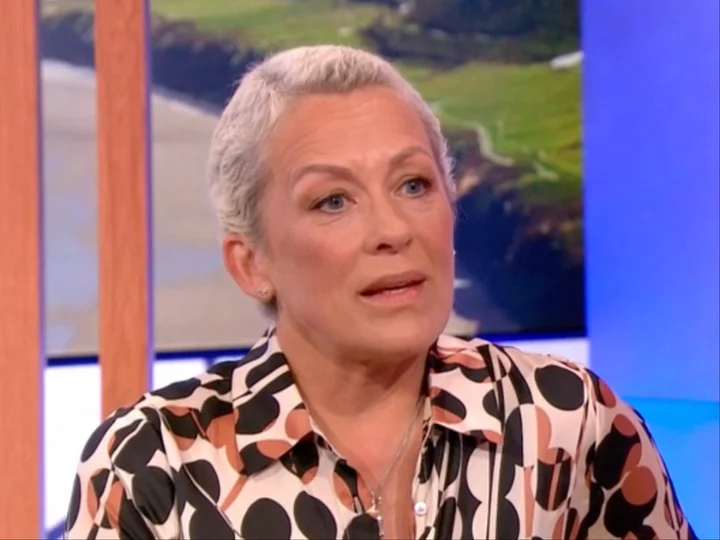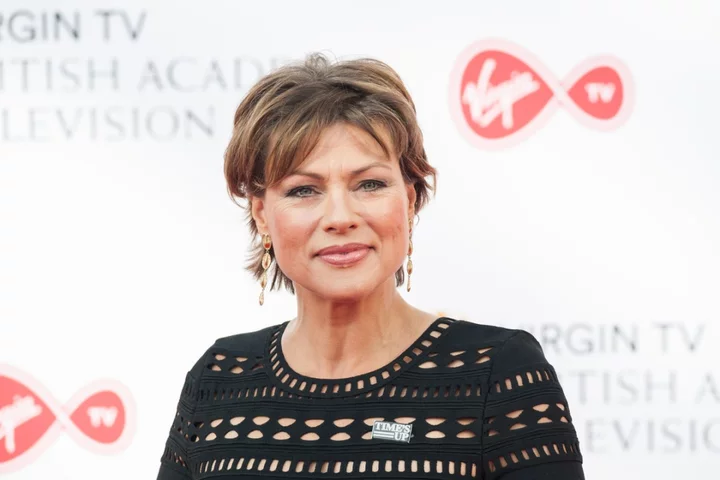
Jetting off this summer? Doctors share essential in-flight health tips
Holidays are great – but travelling can take its toll on your body and mind, particularly when flying long distances. “When you consider that pressure, temperature and oxygen levels fluctuate in the aircraft, add in the fact that humidity levels are lower than sea level – it’s not surprising flying can upset some of your body’s normal functions,” says Dr Chun Tang, medical director and GP at Pall Mall Medical. “Not forgetting, most people feel varying degrees of stress before take-off too.” So, if your summer holiday is set to include a hefty flight, what are some of the key things to think about when it comes to health and wellbeing? Dehydration “Airplanes can dehydrate you because half of the air circulating in the cabin comes from the outside, and when you’re at a higher altitude there is hardly any moisture in the air,” says Tang. If you want to help mitigate the impact of dehydration while flying, consider what you eat and drink both before and during. “Eat something light, like a salad and fruit. Avoid salty fast food, especially before flying, as this can cause bloating and dehydration,” suggests Tang. “Many people like to have an alcoholic drink in the departure lounge prior to flying, but you are just dehydrating yourself further. Avoid coffee too and stick to fresh juices and water. “After you’ve flown, tempting as it is to go and get an alcoholic beverage, keep drinking water to restore hydration.” Germs Tang explains: “When you fly, you’re exposed to more germs because you’re near others – that’s why it’s common to catch a cold or sniffle following a flight. Your tray table, seatbelt and other surfaces that are frequently touched will also be covered with germs. “Carry a small bottle of hand sanitiser and cleaning wipes with you,” he suggests, “and wash your hands frequently during travel.” Sleep Jet-lag is a pain and can easily ruin the start and end of a trip. So, how can you mitigate its impacts and keep your sleep cycle solid? “Exposure to light is incredibly important for regulating your body clock. When it’s dark outside, you’re more likely to fall asleep,” says Tang. “If you’re travelling west to the USA or South America, for example, you should seek light in the evening time. If you’re headed east, then you want to restrict light exposure if you’re arriving at night-time and seek it out in the morning. “Studies show that blue light from your smartphone or tablet can keep you awake, so avoid these when you’re trying to get some sleep,” he adds. Ears Tang says another possible “side-effect of flying can be stress on your ears due to pressure changes in the cabin”. This is why it’s often advised that people avoid flying if they have an ear infection, for example.“When the outside pressure changes quickly during take-off and landing, you may feel your ears pop. Sometimes this imbalance can cause motion sickness because your brain is receiving conflicting messages,” says Tang. “Try swallowing or yawning to open the eustachian tubes [which connect the middle ear and throat] during take-off and landing.” Circulation Deep vein thrombosis (DVT) is a very real concern for many people when flying. These blood clots, which usually affect the legs, can be extremely serious. “One of the most common causes of DVT is prolonged periods of inactivity when travelling long distances,” says Professor Mark Whiteley, leading venous surgeon and founder of The Whiteley Clinic. “When people significantly reduce the activity in their legs, the blood flow becomes very sluggish in the deep veins – therefore putting people at a higher risk of a clot forming. “It is important to keep as active as possible when flying by regularly stretching and going for a walk up and down the cabin aisle, at least once per hour if it is a long flight,” he adds. “I would also advise wearing properly fitted flight stockings. This speeds up the flow of blood in the veins and therefore reduces the risks of the blood clotting.” Anyone can potentially get DVT, but if you have a history of blood clots or may be at increased risk, always speak with your doctor before travelling. What if I have a pre-existing condition? “If you have pre-existing health conditions, then it’s best to check with your GP on any specific aspects of flying that may impact you,” says Tang. “You’ll also need to ensure that you have purchased adequate travel insurance that will cover you should you require any medical attention while abroad.” Another important consideration is to make sure any medication you will need is stored in your hand luggage/carry-on bag, and not in the hold (in case it goes missing). Some countries may also have restrictions on certain medications – ensure you speak with your doctor well in advance of travelling. Read More Charity boss speaks out over ‘traumatic’ encounter with royal aide Ukraine war’s heaviest fight rages in east - follow live How do heterosexual celebrities become LGBTQ+ icons? More help with childcare costs for families on universal credit from end of June Menopause and menstruation guidance launched for workplaces to support employees
2023-05-31 22:58

Why Are Hyperlinks Blue?
Unpacking the reason hyperlinks are blue requires dipping into early internet history.
2023-05-31 22:22

Bruce Springsteen suffers fall on stage during Amsterdam concert
Bruce Springsteen is proved over the weekend he's tougher than the rest
2023-05-31 21:54

Sarah Beeny shares health update after all-clear from breast cancer
Sarah Beeny has said she is feeling happy and well after being given the all-clear from cancer by her doctors. The TV presenter and property expert, 51, was diagnosed with breast cancer in August last year. In April she was told she was all-clear from the disease. In recent months, Beeny has been working on a new Channel 4 documentary that follows her journey from diagnosis to treatment. Appearing on BBC‘s The One Show on Monday (29 May), the presenter said she “always feared” getting breast cancer after her mother died from the same cancer when Beeny was 10 years old. “When I got to 39, which is the age she died, I thought ‘Here we are.’ And then I got to 40 and thought, that’s weird!” she said. “And then I got to 50 and got the diagnosis.” “I’ve lived with this fear for such a long time,” she continued. “But once I realised how the treatment works, it’s not nearly as bad as the fear.” Appearing on Lorraine in April, Beeny said her cancer journey had been a “rollercoaster ride”. ​​“But I feel very fortunate that I had the diagnosis that I did, and that I live in 2023 and that I’m the age that I am. So many things I’m fortunate for, so I feel very blessed,” she said. Beeny, who received chemotherapy, said she would have to take medication for the next 10 years and remain “very vigilant”. “But, yeah, it’s been a weird ride that I wouldn’t wish on anyone else but I’m glad I did it rather than somebody else,” she added. Beeny has four children: Rafferty, Laurie, Billy and Charlie; and married her husband, artist Graham Swift, in 2003. Her family appears in her Channel 4 series Sarah Beeny’s New Life In The Country, which was filmed before her diagnosis. Sarah Beeny: Breast Cancer, My Family and Me will air on Monday 12 June on Channel 4 at 9pm. Read More College student goes viral after sharing her wild two hour commute everyday: ‘This is a journey’ Mother’s warning after viral TikTok hack left skin peeling from her face The ideal age gap for a relationship if you want it to last, according to experts Sarah Beeny shares health update after all-clear from breast cancer Breast cancer symptoms and survival rate as Amy Dowden diagnosed Signs and symptoms of breast cancer as Amy Dowden reveals diagnosis
2023-05-31 20:25

Megan Thee Stallion won't release new music until she's 'in a better place'
Megan Thee Stallion is putting her health first to avoid "burning out".
2023-05-31 18:57

Rick Astley does interview in his Pyjamas and jokes he'll rock them on Glasto stage
Rick Astley seemingly woke up late for his 'BBC Breakfast' interview or he's not got a problem being seen in his jimmy jams.
2023-05-31 18:57

What Is Adidas Without Yeezy? Big Take Podcast
Listen to The Big Take podcast on iHeart, Apple Podcasts, Spotify, Terminal. What is Adidas without Yeezy? It’s
2023-05-31 18:29

Soros Firm Wrestles With the Scope 3 Conundrum
Just a piddling 5% of US companies report their Scope 3 greenhouse gas emissions. Unlike those tied directly
2023-05-31 18:28

Kate Silverton reveals why she left BBC news career to become child therapist
Former BBC newsreader Kate Silverton has opened up about swapping her successful news career for becoming a qualified child therapist. In 2021, Silverton left her role as a newsreader because she was inspired by her “love” for child psychology. “My academic background is in child psychology, and becoming a mum really inspired me too,” she told the PA news agency. She continued: “My journey has really been decades long, both in understanding more about children’s mental health, and as a parent really benefiting from all the interviews and access to advice that I was given by incredible people.” The 52-year-old, who currently works in a primary school supporting young children with complex needs, admitted that when she competed in BBC’s ballroom dancing competition Strictly Come Dancing in 2018 (she was paired with professional dancer Aljaž Škorjanec and finished eighth), it was with a view of leaving journalism to train as a child therapist. “My interest has been long-held, and I’ve now qualified, and it’s absolutely my life’s passion. So I’ll be using journalism and all my presenting experience to raise awareness around children’s mental health and really to support parents. “I’ve had an incredible life in journalism [presenting BBC News at One and BBC Breakfast, among other high-profile TV and radio roles], and many, many years that have been really fulfilling. I think you’re always drawing upon the experiences you’ve picked up before, but as a mum especially, for me, this is now where home is, and will become my life’s work.” Silverton’s two children, Clemency, 11, and Wilbur, eight, are now aged 11 and eight, and were conceived naturally after Silverton and her husband, Mike Heron, tried IVF but it wasn’t successful. She continued to work as a journalist after Clemency was born, but took two years off when she had Wilbur in 2014. “I was freelance, but it got to the point where I thought I can’t physically do this – you know, I’m an older parent as well,” she said. “I had to make a judgement call – and I can only ever speak for myself, there’s no judgement for others. But I took two years out because I just couldn’t see any other way of doing everything, and doing it the way I hoped to. “It’s really, really hard for parents now, and I say to a lot of the parents I speak to in my clinical work, ‘Please, please, please do not berate yourself, we are living in a very challenging time’. We’re pulled in so many ways, we’re still doing a lot of work at home, and we’re expected to be present either at work, and/or at home. “So there’s no easy answer. But I think we owe it to our children to start asking, is this really working for us as parents? And is it working for our children?” Silverton, who is currently working on her second parenting book, added that she sees her career change as a “second act” in her life. “Ultimately, I thought I don’t want to be doing this, I don’t want to be in the newsroom on a Saturday night when my children are at home with my husband,” she said. With additional reporting from PA. Read More James Middleton says Prince George, Prince Louis and Princess Charlotte are ‘lucky’ A tennis court, walled gardens and a moat: Inside Brightwell Manor, Boris and Carrie Johnson’s new home Al Pacino, 83, is expecting his fourth child with girlfriend Noor Alfallah Kate Silverton on swapping her BBC news career to work as a child therapist Menopause and menstruation guidance launched for workplaces to support employees Watching Love Island this year? How to avoid comparing your body to what’s on screen
2023-05-31 16:58

Menopause and menstruation guidance launched for workplaces to support employees
A new workplace standard has been launched for businesses to support employees experiencing menopause or menstruation. The British Standards Institute (BSI) has published the new guidance to help organisations retain experienced and talented staff after a consultation with experts and the public. The Menstruation, menstrual health and menopause in the workplace standard (BS 30416) sets out practical recommendations for workplace adjustments as well as strategies that can help employers meet the needs of those experiencing menopause or menstruation. It comes after research from the Fawcett Society suggested about 10% of those experiencing menopause have left the workplace due to symptoms such as hot flushes, dizziness, insomnia, and muscle and joint stiffness. Organisations which prioritise their people by building an inclusive workplace will be best placed to continue to thrive in the future Anne Hayes, British Standards Institute This figure rises to 25% for those with more severe symptoms. Wm Morrison and BT as well as representatives from Unison, the Federation of Small Businesses, the LGBT Foundation, the Institution of Occupational Safety and Health, the Daisy Network and Endometriosis UK all gave input to the development of BS 30416. The recommendations include workplaces considering whether there is a general awareness of menstruation and menopause in its culture and whether employees have opportunities for open conversations or to request support. Suitable training for line managers and HR managers, reviewing the workplace environment to include facilities such as quiet recovery spaces or discrete changing rooms, and options for flexible working are also among the guidance. Anne Hayes, director of sectors at the BSI, said: “Organisations which prioritise their people by building an inclusive workplace will be best placed to continue to thrive in the future. “There is no one-size-fits-all experience of menopause, but the data suggests thousands of women are leaving the workforce at this stage, contributing to significant productivity losses, robbing organisations of talented people, and removing mentors who can draw on their experience to support newer members of staff. It doesn’t have to be that way.” If we get this right for 50% of the population that we need in the workplace from an economic and experience perspective, it has the potential to make the final 10, 15 or 20 years of a woman’s career the most productive, exciting and meaningful Helen Tomlinson, menopause employment champion Helen Tomlinson, menopause employment champion for the UK Government, said: “I am truly delighted that the BSI have produced the Menstruation, menstrual health and menopause in the workplace standard, recognising the challenges, symptoms and experiences of both menopause and menstrual health and how these can affect women in the workplace. “It’s a free resource for any organisation, large or small across all sectors, to be able to utilise. This will go a long way to ensure that everyone can receive the support they need at this critical time. “I firmly believe this transition isn’t a time to step back, step down or step out. If we get this right for 50% of the population that we need in the workplace from an economic and experience perspective, it has the potential to make the final 10, 15 or 20 years of a woman’s career the most productive, exciting and meaningful.” Read More Charity boss speaks out over ‘traumatic’ encounter with royal aide Ukraine war’s heaviest fight rages in east - follow live Kate Silverton on swapping her BBC news career to work as a child therapist Watching Love Island this year? How to avoid comparing your body to what’s on screen Dating ‘green flags’ to look out for on Love Island – and in your own life
2023-05-31 16:26

Kate Silverton on swapping her BBC news career to work as a child therapist
Most people know Kate Silverton from her time as a BBC newsreader, or possibly from when she took part in Strictly Come Dancing. But that’s the old Kate Silverton. The new Kate Silverton is a qualified child therapist – so what made the mum-of-two swap such a successful media career to help children instead? “The love of it! My academic background is in child psychology, and becoming a mum really inspired me too,” she says. She’s worked with a number of children’s mental health charities over the years, and explains: “My journey has really been decades long, both in understanding more about children’s mental health, and as a parent really benefiting from all the interviews and access to advice that I was given by incredible people.” Currently working in a primary school supporting young children with complex needs, Silverton, 52, admits that when she competed on Strictly in 2018 (she was paired with professional dancer Aljaž Škorjanec and finished eighth), it was with a view of leaving journalism to train as a child therapist. “And that’s what I did,” she declares proudly. “My interest has been long-held, and I’ve now qualified, and it’s absolutely my life’s passion. So I’ll be using journalism and all my presenting experience to raise awareness around children’s mental health and really to support parents. “I’ve had an incredible life in journalism [presenting BBC News at One and BBC Breakfast, among other high-profile TV and radio roles], and many, many years that have been really fulfilling. I think you’re always drawing upon the experiences you’ve picked up before, but as a mum especially, for me, this is now where home is, and will become my life’s work.” Silverton’s two children, Clemency and Wilbur, are now aged 11 and eight, and were conceived naturally after Silverton and her husband, Mike Heron, tried IVF but it wasn’t successful. She continued to work as a journalist after Clemency was born, but took two years off when she had Wilbur in 2014. “I was freelance, but it got to the point where I thought I can’t physically do this – you know, I’m an older parent as well. “I had to make a judgement call – and I can only ever speak for myself, there’s no judgement for others. But I took two years out because I just couldn’t see any other way of doing everything, and doing it the way I hoped to. “It’s really, really hard for parents now, and I say to a lot of the parents I speak to in my clinical work, ‘Please, please, please do not berate yourself, we are living in a very challenging time’. We’re pulled in so many ways, we’re still doing a lot of work at home, and we’re expected to be present either at work, and/or at home. “So there’s no easy answer. But I think we owe it to our children to start asking, is this really working for us as parents? And is it working for our children?” Was she worried that taking two years out might affect her career? “I was the main breadwinner,” she says, “And my husband and I made a decision between us that things would change. And I think a lot of families do that – they have to find themselves having really difficult conversations. And certainly, there are no easy answers. “But what I found is I’ve changed my career, and I see it as a second act, if you like, and maybe that’s thanks to having children. So sometimes, what can seem a really difficult decision and one that we might worry about, you kind of think, actually, maybe it wasn’t the right place for me, after all.” She returned to journalism after her two years out, but was working at weekends doing the Saturday night news while her husband looked after the kids. “Ultimately, I thought I don’t want to be doing this, I don’t want to be in the newsroom on a Saturday night when my children are at home with my husband,” she says. “We all make these decisions based on our own personal circumstances, and for me at the time, I was ready to follow my heart and retrain, as that had been in my mind for a very long time. So I guess the decision made itself, really.” Silverton is now determined to help make family life work not only for herself, but for other parents, and as well as her work in a primary school and writing the book There’s No Such Thing As ‘Naughty’ (Piatkus, 2021) – a parenting guide which explores how children’s brains develop and how it influences their behaviour – she’s teamed up with the children’s furniture brand Stokke to explore parents’ worries about child development in the under-fives. New Stokke research has found 29% of parents of children aged zero to five years are concerned about their child growing up shy, and nearly a third (31%) of parents identify confidence as the most important characteristic for their child to gain during their early years. “First and foremost for children, especially under five, we want to ensure the foundations being built in their brain are strong,” explains Silverton. “And parents are the best people to build those foundations for future mental health.” In practical terms, what do parents need to do to help their children learn to be confident and mentally strong? “Be with them,” advises Silverton. “Our presence is really crucial, because when our children inevitably navigate more challenging experiences, having us nearby to model the behaviour that’s appropriate can give them the confidence to know they can eventually go off alone. “I’d love parents to feel more confident to follow their instincts when it comes to being with their children. Our children don’t necessarily need to be doing in these early years, they simply need to be. And by that I mean being with and alongside us as their guide. Because parents really are more powerful than they know.” She stresses it isn’t about buying young children expensive educational toys or doing anything complicated. “It’s the little things that mean so much – putting the phone down and actually engaging with our children face-to-face, getting down on the floor and playing with them, spending time with them, letting them know we value them and we want to spend time with them, we love and we delight in their presence. These are the things that build confidence, because they’re building a sense of self-worth.” Although she’s stepped back from her high-profile broadcasting career, Silverton’s still very busy with child therapy and writing her second book, which she hopes will be published in the autumn. But, as she says herself, “We’re told we can have it all – well, actually, you can have it all, but not at the same time.” “Being a busy parent who’s also trying to work, I suppose the victim is my own wellbeing,” she reflects. “It’s not like I’m terrible, but it does get squeezed more than I’d like.” However, she does find some time to look after herself. “Whether it’s bouncing on a little trampoline, or going to walk your dog or doing yoga, anything that’s patterned, repetitive, rhythmic, is actually very soothing for our brain stem, and absolutely vital for our health,” she explains. “I am really mindful of my health, and I’d love to carve out more time, and certainly when I’ve got book two finished, I will be doing a lot more of it. But I pretty much keep in balance, and I’m fairly good at recognising when my body’s out of kilter and then doing something about it. So I haven’t learned this much without applying a few good principles myself!” Kate Silverton is supporting Stokke to explore parents’ worries about child development and the early years. Read More Charity boss speaks out over ‘traumatic’ encounter with royal aide Ukraine war’s heaviest fight rages in east - follow live Watching Love Island this year? How to avoid comparing your body to what’s on screen Dating ‘green flags’ to look out for on Love Island – and in your own life Crackdown on vape adverts targeting kids – what parents can do
2023-05-31 14:55

Joe Trohman returns to Fall Out Boy
Joe Trohman has returned to Fall Out Boy following a four-month break to focus on his mental health.
2023-05-31 14:22
